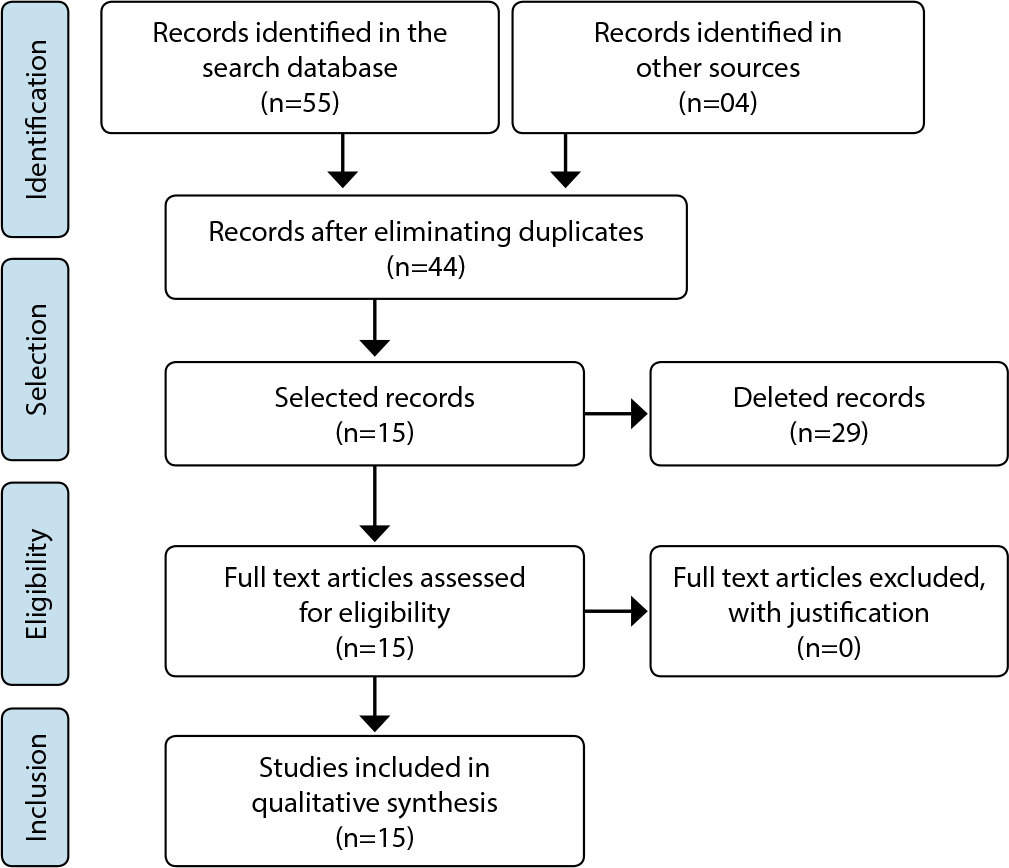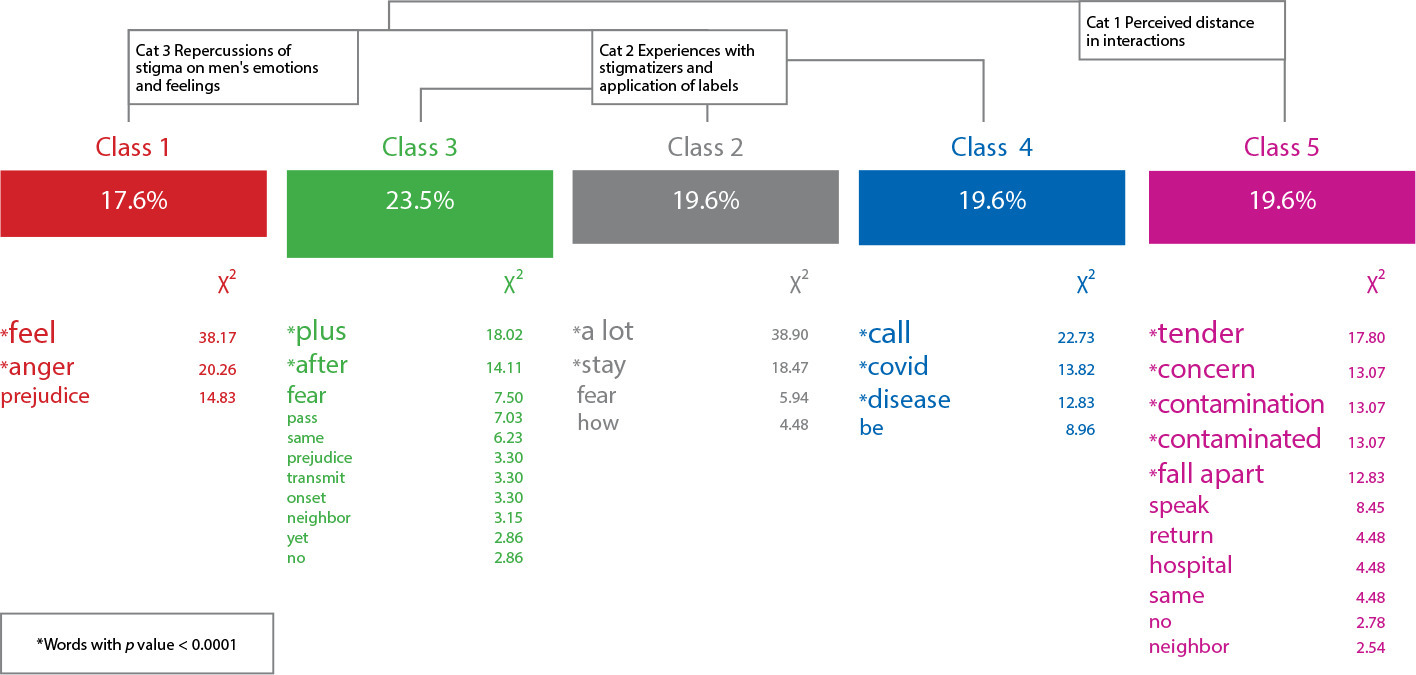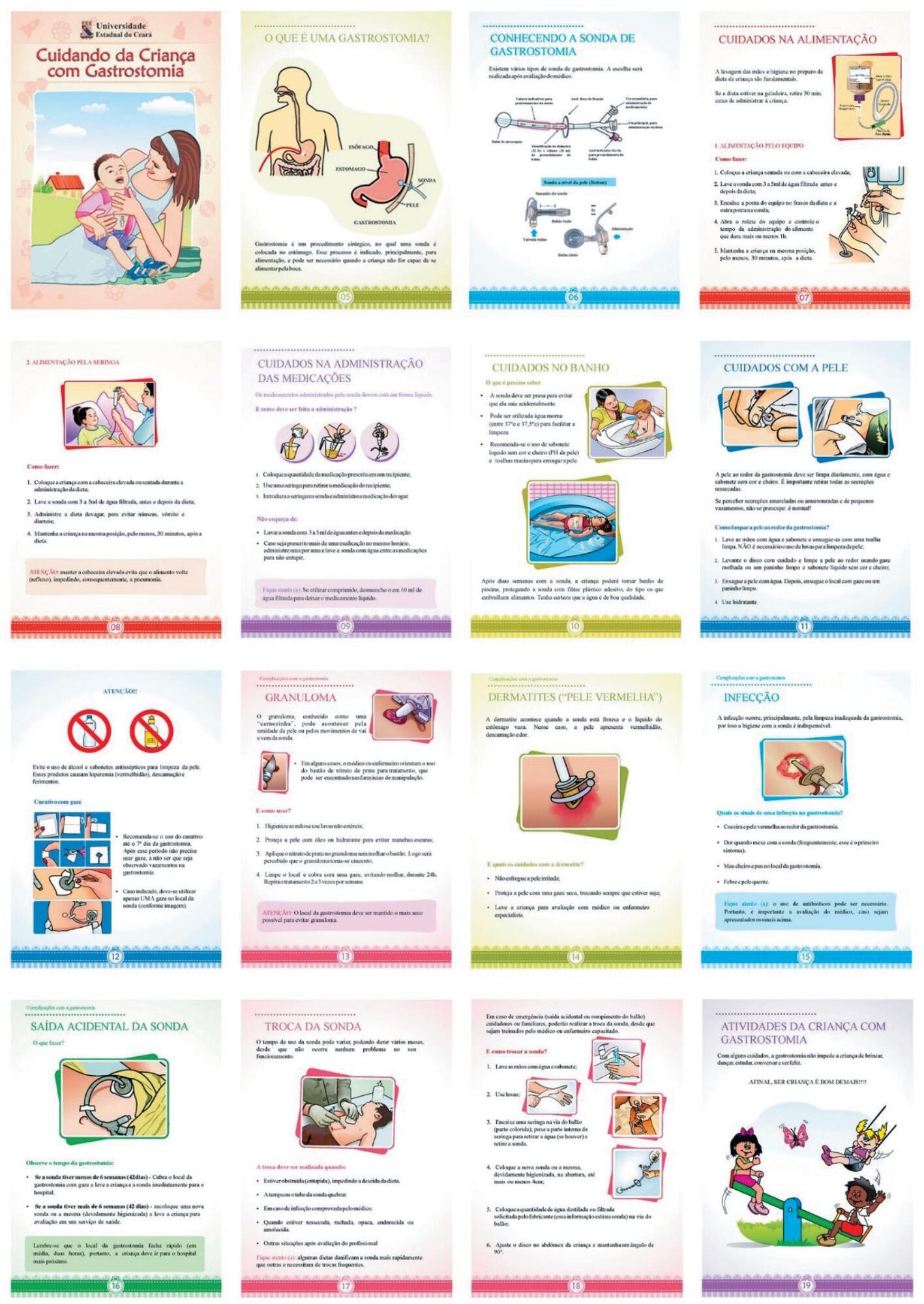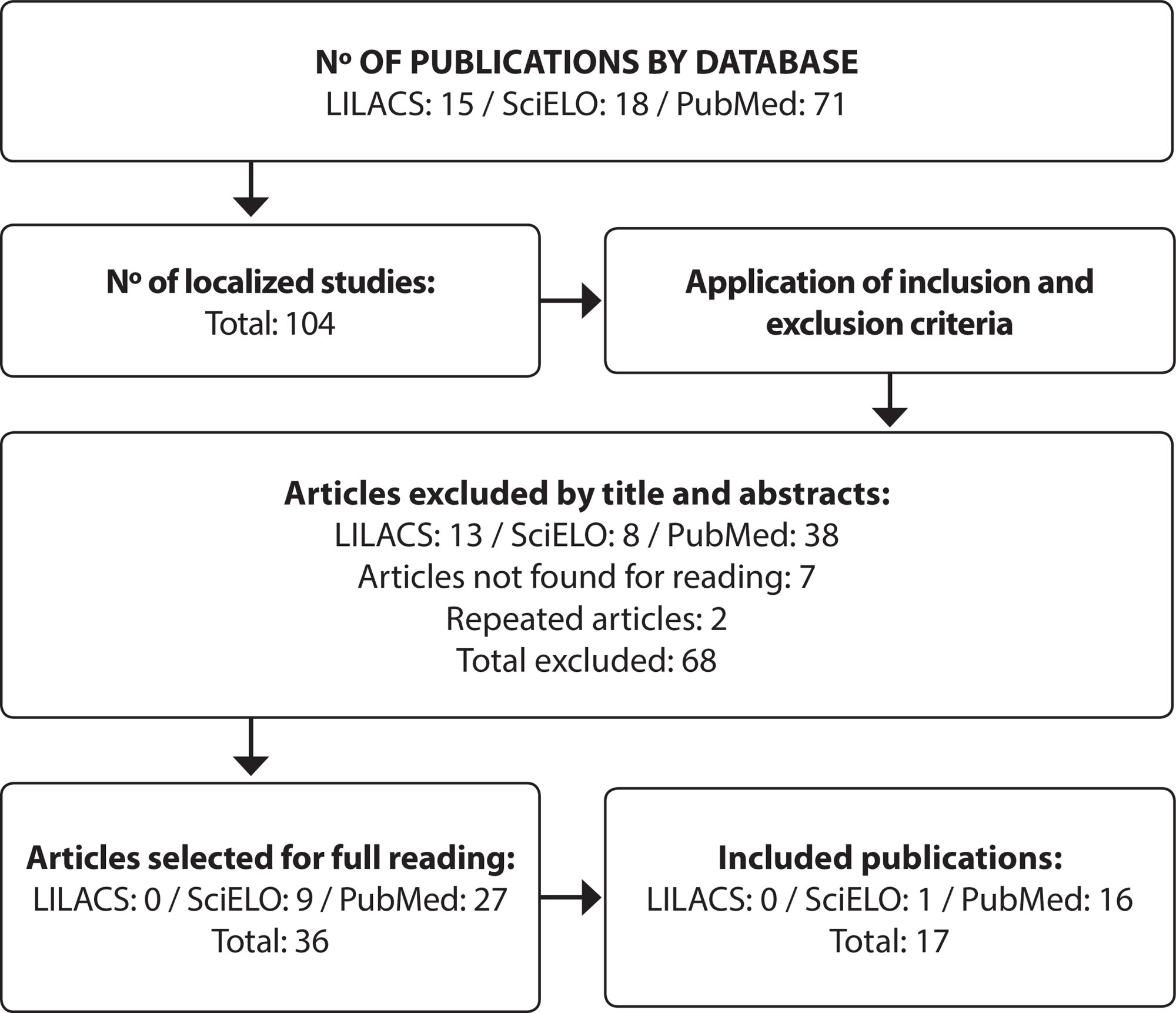-
11-25-2022
Populações vulnerabilizadas no contexto da pandemia e crises sanitárias
Revista Brasileira de Enfermagem. 2022;75:e75Suppl201
Abstract
Populações vulnerabilizadas no contexto da pandemia e crises sanitárias
Revista Brasileira de Enfermagem. 2022;75:e75Suppl201
DOI 10.1590/0034-7167.202275Suppl201pt
Views0As condições e os modos de vida da população determinam o processo de saúde e adoecimento de forma diferenciada entre os diversos grupos populacionais. As desigualdades na saúde vêm adquirindo relevância ainda maior na produção de diferentes perfis de doença, em função de recentes e surpreendentes acontecimentos mundiais, como divergências étnico-raciais, religiosas, territoriais, identidade de […]See more -
11-25-2022
Reflexões sobre a ciência em enfermagem gerontológica: possibilidades para o seu caminhar
Revista Brasileira de Enfermagem. 2022;75:e75Suppl401
Abstract
Reflexões sobre a ciência em enfermagem gerontológica: possibilidades para o seu caminhar
Revista Brasileira de Enfermagem. 2022;75:e75Suppl401
DOI 10.1590/0034-7167.202275Suppl401pt
Views0O conhecimento científico em enfermagem gerontológica brasileiro tem seus primórdios há mais de 50 anos, especificamente em meados de 1970, alinhados ao movimento mundial de reconhecimento da complexidade do envelhecimento populacional e dos seus desafios na esfera social, cultural, política e de saúde pública. Desde então, a produção científica nesse campo guarda relação com a […]See more -
11-19-2022
Advanced Practice Nursing: Canadian Perspectives and Global Relevance
Revista Brasileira de Enfermagem. 2022;75(1):e750101
Abstract
Advanced Practice Nursing: Canadian Perspectives and Global Relevance
Revista Brasileira de Enfermagem. 2022;75(1):e750101
DOI 10.1590/0034-7167.2022750101
Views0In this editorial, Advanced Practice Nursing (APN) will be explored as a practice model that could be implemented to strengthen health care systems globally. Canadian perspectives and the evolution of APN in Canada will be used as an example to identify potential opportunities for the conceptualization and implementation of advanced practice nursing that is both […]See more -
11-19-2022
Enfermagem de Prática Avançada: Perspectivas Canadenses e Relevância Global
Revista Brasileira de Enfermagem. 2022;75(1):e750101
Abstract
Enfermagem de Prática Avançada: Perspectivas Canadenses e Relevância Global
Revista Brasileira de Enfermagem. 2022;75(1):e750101
DOI 10.1590/0034-7167.2022750101
Views0Neste editorial, a Enfermagem de Prática Avançada (EPA) será explorada como um modelo de prática que pode ser implementado para fortalecer os sistemas de saúde globalmente. As perspectivas canadenses e a evolução da EPA no Canadá serão usadas como um exemplo para identificar oportunidades potenciais para a conceituação e implementação da EPA que seja abrangente […]See more -
ORIGINAL ARTICLE11-19-2022
Factors associated with the perception of fear of COVID-19 in university students
Revista Brasileira de Enfermagem. 2022;75:e20210448
Abstract
ORIGINAL ARTICLEFactors associated with the perception of fear of COVID-19 in university students
Revista Brasileira de Enfermagem. 2022;75:e20210448
DOI 10.1590/0034-7167-2021-0448
Views0See moreABSTRACT
Objective:
to analyze the factors associated with the perception of fear of COVID-19 in Brazilian university students.
Methods:
this is an online, cross-sectional analytical study conducted at a Brazilian public university with 1,437 undergraduate students between September and November 2020. The Fear of COVID-19 Scale was used to measure the main construct. Data analysis was performed using Mann-Whitney U test, Cohen’s r test and multiple linear regression analysis.
Results:
factors associated with fear of COVID-19 in university students were the variables biological sex, perception of good sleep quality, many days of access to information, not complying with social distancing, reporting sufficient hours of sleep, not having a partner, guidance sexual non-heterosexual, being in the risk group for COVID-19 and tobacco consumption.
Conclusions:
the study findings can contribute to the discussion about the weaknesses that the university population is experiencing in this pandemic period.
-
REVIEW11-19-2022
Nursing care for bed bath in patients with COVID-19: an integrative review
Revista Brasileira de Enfermagem. 2022;75:e20200704
Abstract
REVIEWNursing care for bed bath in patients with COVID-19: an integrative review
Revista Brasileira de Enfermagem. 2022;75:e20200704
DOI 10.1590/0034-7167-2020-0704
Views0See moreABSTRACT
Objective:
to identify the main nursing care procedures for performing bed bath in patients with COVID-19.
Method:
an integrative literature review. Five stages were followed for this research: research question elaboration (identification of the problem), search of studies in literature, study assessment, data analysis, and presentation of review. To search for primary studies, the VHL and SciELO databases were selected.
Results:
initially, 55 publications were found. After reading and analyzing the abstracts, the sample consisted of 15 studies.
Conclusion:
patients with the new coronavirus have specific care to perform a bed bath, oral, intimate and skin hygiene. It is important that professionals use adequate personal protective equipment, perform humanized care, continuously observing patients’ vital signs to avoid occurrence of adverse events, promoting patient safety.

-
ORIGINAL ARTICLE11-19-2022
Stigma experienced by men diagnosed with COVID-19
Revista Brasileira de Enfermagem. 2022;75:e20210038
Abstract
ORIGINAL ARTICLEStigma experienced by men diagnosed with COVID-19
Revista Brasileira de Enfermagem. 2022;75:e20210038
DOI 10.1590/0034-7167-2021-0038
Views0See moreABSTRACT
Objective:
to analyze the stigma characteristics perceived in the experience of men who had COVID-19.
Method:
this qualitative study involved men living in Brazil, diagnosed with COVID-19, who answered semi-structured questions in an online form. Data were subjected to thematic and lexical analysis, interpreted in the light of the stigma theory.
Results:
92 men, adults, cisgender, heterosexual, of mixed race/color, belonging to middle class, living in the urban area, with higher education participated. The stigma characteristics evidenced were the occurrence of leave, perception of impolite treatment, use of labels and discrimination by co-workers, family members, neighbors and even healthcare professionals, with consequences for the psycho-emotional dimension.
Final considerations:
discrimination and exclusion derived from stigma surprised men marked by class and gender privileges, little used to being downgraded in interactions when compared to other groups.

-
ORIGINAL ARTICLE11-15-2022
Suffering and defense mechanisms: an analysis of the work of Primary Health Care nurses
Revista Brasileira de Enfermagem. 2022;75:e20200419
Abstract
ORIGINAL ARTICLESuffering and defense mechanisms: an analysis of the work of Primary Health Care nurses
Revista Brasileira de Enfermagem. 2022;75:e20200419
DOI 10.1590/0034-7167-2020-0419
Views0See moreABSTRACT
Objective:
To analyze the suffering and coping strategies of nurses working in Primary Health Care considering the psychodynamics of their work.
Methods:
Descriptive study with a qualitative approach, carried out with 11 nurses working in Primary Health Care. Data were collected through semi-structured interviews, systematized, and interpreted using Bardin’s content analysis method applied to recurrent themes.
Results:
The suffering factors related to work in Primary Health Care are difficulties with management, the fragile structure of the health support network, and conflicts with the users. Defensive strategies to minimize these difficulties are the support of hierarchical superiors, the empowerment of the community and users, and communication between team members.
Final considerations:
It is important that there be changes in the organization of this line of work to improve the workers’ health.
-
ORIGINAL ARTICLE12-16-2024
Narratives of sex workers: intimate partner violence and coping strategies
Revista Brasileira de Enfermagem. 2024;77(6):e20240180
Abstract
ORIGINAL ARTICLENarratives of sex workers: intimate partner violence and coping strategies
Revista Brasileira de Enfermagem. 2024;77(6):e20240180
DOI 10.1590/0034-7167-2024-0180
Views0See moreABSTRACT
Objectives:
to understand the narratives of sex workers about violence suffered by intimate partners and their coping strategies.
Methods:
qualitative research, focused on thematic oral history, carried out with six sex workers in southern Brazil, who responded to in-depth interviews using a flexible script. Thematic content analysis was used.
Results:
the study included cisgender women who self-identified as half black and half white. Most had children and were separated. They reported abusive relationships by their intimate partners, with emphasis on verbal, psychological, financial, and physical violence and attempted femicide. Such violence resulted in coping strategies, such as avoiding emotional bonds and maintaining a discreet life.
Final Considerations:
intimate partner violence is prevalent among participants, leading them to adopt strategies to preserve their safety and well-being, highlighting the need for public policies that meet their particularities and guarantee protection.
-
ORIGINAL ARTICLE12-16-2024
Software for the care of people with cardiovascular risk: construction and evidence of validity
Revista Brasileira de Enfermagem. 2024;77(6):e20240276
Abstract
ORIGINAL ARTICLESoftware for the care of people with cardiovascular risk: construction and evidence of validity
Revista Brasileira de Enfermagem. 2024;77(6):e20240276
DOI 10.1590/0034-7167-2024-0276
Views0See moreABSTRACT
Objectives:
to build and validate software for the care of people with cardiovascular risk.
Methods:
a methodological study, applied to software development, anchored in a nursing theory and classification system, in three stages: 1) requirements engineering; 2) software architecture and coding; and 3) testing and content validity by 12 experts in computer science, with a Content Validity Ratio score.
Results:
called e-TEORISC, in software format, for nursing care for people with cardiovascular risk, online and offline, containing a database linked to the Nursing Process stages. Experts considered that the attributes of functional suitability, performance efficiency, reliability, maintainability, usability, safety and portability obtained desirable scores.
Conclusions:
e-TEORISC has evidence of validity to instrumentalize care for people at cardiovascular risk, with potential for technology transfer to the Brazilian Health System.

-
ORIGINAL ARTICLE08-30-2024
Meanings attributed to changes experienced by individuals after COVID-19 hospitalization
Revista Brasileira de Enfermagem. 2024;77:e20230122
Abstract
ORIGINAL ARTICLEMeanings attributed to changes experienced by individuals after COVID-19 hospitalization
Revista Brasileira de Enfermagem. 2024;77:e20230122
DOI 10.1590/0034-7167-2023-0122
Views0See moreABSTRACT
Objectives:
to understand the meanings attributed to the experiences of individuals after hospitalization for COVID-19.
Methods:
qualitative study, with a theoretical framework based on Symbolic Interactionism and a methodological approach grounded in Grounded Theory. Nineteen participants who had moderate and severe forms of COVID-19 after hospitalization were interviewed. Data collection took place between April and November 2021 through online interviews, and the data were analyzed using initial and focused coding in the MAXQDA software.
Results:
the data illustrate new meanings attributed to different aspects of life after hospitalization, including relationships with others, the environment, physical and mental health, finances, identity, and interactions with a new social reality.
Conclusions:
the meanings are intrinsically linked to the value of interpersonal relationships, the perception of their impact, and the consequences after hospitalization. This allows professionals to understand the importance of this information to improve care and prepare for future epidemics.

-
ORIGINAL ARTICLE08-30-2024
Patient safety culture in times of the COVID-19 pandemic: a cross-sectional study in a hospital
Revista Brasileira de Enfermagem. 2024;77:e20230187
Abstract
ORIGINAL ARTICLEPatient safety culture in times of the COVID-19 pandemic: a cross-sectional study in a hospital
Revista Brasileira de Enfermagem. 2024;77:e20230187
DOI 10.1590/0034-7167-2023-0187
Views0See moreABSTRACT
Objectives:
to assess patient safety culture during the COVID-19 pandemic and identify the dimensions that need to be improved in hospital settings and which sector, open or closed, direct or indirect care, exhibits a higher level of safety culture.
Methods:
a descriptive and cross-sectional study. The validated version for Brazil of the Hospital Survey on Patient Safety Culture instrument was applied to assess patient safety culture. Those dimensions with 75% positive responses were considered strengthened.
Results:
all dimensions presented results lower than 75% of positive responses. Closed sectors showed a stronger safety culture compared to open ones. Indirect care sectors had a low general perception of patient safety when compared to direct care sectors.
Conclusions:
with the pandemic, points of weakness became even more evident, requiring attention and incisive interventions from the institution’s leaders.

-
REVIEW08-30-2024
Educational actions conducted during the pandemic with primary health care professionals: a scoping review
Revista Brasileira de Enfermagem. 2024;77:e20230352
Abstract
REVIEWEducational actions conducted during the pandemic with primary health care professionals: a scoping review
Revista Brasileira de Enfermagem. 2024;77:e20230352
DOI 10.1590/0034-7167-2023-0352
Views0See moreABSTRACT
Objectives:
to map the educational actions conducted with primary health care professionals during the COVID-19 pandemic.
Methods:
a scoping review conducted in August 2023, which covered databases such as CINAHL, Medline, LILACS, IBECS, BDENF, and Web of Science. In total, 32 publications were analyzed through content analysis.
Results:
the primary beneficiaries of the educational actions included 69% physicians, 56% nurses, 25% pharmacists, 13% social workers and dentists, 9% psychologists, community health agents, and laboratory professionals, and 6% nursing technicians, nutritionists, and physical educators. The predominant educational interventions were training sessions (mentioned in 19 publications), followed by Continuing Health Education (10 publications) and Continuing Education (three publications).
Final Considerations:
the educational interventions demonstrated positive impacts on professional practice, particularly the Continuing Health Education actions, which were notable for stimulating critical problem-solving among professionals.

-
REVIEW08-30-2024
Impact of financial toxicity on adults with cancer during the COVID-19 pandemic: an integrative review
Revista Brasileira de Enfermagem. 2024;77:e20240078
Abstract
REVIEWImpact of financial toxicity on adults with cancer during the COVID-19 pandemic: an integrative review
Revista Brasileira de Enfermagem. 2024;77:e20240078
DOI 10.1590/0034-7167-2024-0078
Views0See moreABSTRACT
Objectives:
to identify the repercussions of financial toxicity on the lives of adult cancer patients during the COVID-19 pandemic.
Methods:
an integrative review was conducted using the PubMed, Web of Science, Scopus, and Embase databases, as well as the Virtual Health Library portal, in March 2023.
Results:
out of 62 studies found, 13 were included for analysis. The primary repercussions of financial toxicity included difficulties in covering basic expenses such as food, housing, medication, transportation, and internet access; increased anxiety and concerns related to health and financial situations; reduction or absence of income; challenges in obtaining treatment or accessing healthcare services; rising expenses; and telemedicine as a less burdensome alternative.
Conclusions:
the pandemic has exacerbated financial toxicity; therefore, healthcare teams must recognize it as an adverse event of oncological treatment and understand its potential to affect various aspects of patients’ lives.

-
03-08-2024
Nursing as a player in tackling vaccine hesitancy and refusal
Revista Brasileira de Enfermagem. 2024;77:e77suppl101
Abstract
Nursing as a player in tackling vaccine hesitancy and refusal
Revista Brasileira de Enfermagem. 2024;77:e77suppl101
DOI 10.1590/0034-7167.202477suppl101
Views1Since the 1970s, the Brazilian Ministry of Health established the Brazilian National Immunization Program (PNI – Programa Nacional de Imunização), which preceded the Brazilian Health System and which was incorporated and strengthened due to the decentralized model to municipalities, but under single command at central level. Its objective was and still is to coordinate vaccination […]See more -
12-16-2024
Religión y experiencia profesional: ¿Serán predictores de la inteligencia espiritual de los enfermeros? Estudio transversal
Revista Brasileira de Enfermagem. 2024;77(6):e20240217
Abstract
Religión y experiencia profesional: ¿Serán predictores de la inteligencia espiritual de los enfermeros? Estudio transversal
Revista Brasileira de Enfermagem. 2024;77(6):e20240217
DOI 10.1590/0034-7167-2024-0217es
Views1See moreRESUMEN
Objetivos:
analizar la relación entre religión y experiencia profesional con la inteligencia espiritual en enfermeros.
Métodos:
estudio transversal y analítico realizado en 2021, participaron 544 profesionales de enfermería que laboraban en establecimiento de salud de Perú durante la pandemia por COVID-19. Para el análisis de los datos se emplearon el análisis de regresión múltiple y correlación de Pearson.
Resultados:
en los enfermeros predominó un nivel de inteligencia espiritual saludable (42,8%). Quienes no profesaban una religión tenían mayor probabilidad de tener menor puntaje de inteligencia espiritual (escala global y dimensiones); sin embargo, los enfermeros expertos tuvieron mayor probabilidad de tener mayor inteligencia espiritual (escala global y dimensiones) que los enfermeros novatos (p<0,05).
Conclusiones:
la inteligencia espiritual en los enfermeros fue predicha por la religión y la experiencia profesional. Este hallazgo sugiere que la inteligencia espiritual en enfermería se consolida mediante prácticas religiosas y durante el ejercicio profesional.
-
ORIGINAL ARTICLE09-16-2019
Validation of educational booklet: an educational technology in dengue prevention
Revista Brasileira de Enfermagem. 2019;72(5):1318-1325
Abstract
ORIGINAL ARTICLEValidation of educational booklet: an educational technology in dengue prevention
Revista Brasileira de Enfermagem. 2019;72(5):1318-1325
DOI 10.1590/0034-7167-2018-0771
Views0See moreABSTRACT
Objective:
to validate a booklet on dengue prevention in order to make it an educational technology to be used with the population.
Method:
methodological study, carried out with two groups of judges specialized in health and other areas. For data analysis, the calculation of Content Validity Index was carried out.
Results:
the booklet, in general, was considered valid by the expert judges, since it obtained an overall CVI of 70%. However, it has undergone a textual and aesthetic re-elaboration. The changes were based on the substitution of expressions, phrases, information additions and language adequacy. The illustrations were redone, adding clarity, expressiveness, movement, interaction and contextualization.
Conclusion:
the booklet is valid to be used for the population, with the purpose of informing, in a playful way, the forms of prevention and combat to mosquito transmitting dengue.

-
REVIEW09-18-2020
Mental health of healthcare professionals in China during the new coronavirus pandemic: an integrative review
Revista Brasileira de Enfermagem. 2020;73:e20200338
Abstract
REVIEWMental health of healthcare professionals in China during the new coronavirus pandemic: an integrative review
Revista Brasileira de Enfermagem. 2020;73:e20200338
DOI 10.1590/0034-7167-2020-0338
Views0See moreABSTRACT
Objective:
to identify publishing related to the mental health of health professionals working in the front line of the COVID-19 pandemic.
Methods:
an integrative review that included primary articles indexed in the Latin American and Caribbean Literature in Health Sciences, Medical Literature Analysis and Retrieval System Online, Cumulative Index to Nursing and Allied Health Literature, Scopus, Embase, Web of Science, Science Direct databases and US National Library of Medicine databases. The result analysis was performed descriptively, in four analytical categories.
Results:
The publishing involved aspects related to insufficient personal protective equipment, feelings of fear and stigma, the need for psychological and psychiatric support and the possibility of post-outbreak mental disorders.
Conclusion:
All mentioned aspects have a direct impact on the mental health of professionals, demanding the creation of strategies that minimize the emotional burnout of workers, considering that each country and culture reacts differently to the disease.

-
ORIGINAL ARTICLE06-27-2019
Religious/spiritual coping and level of hope in patients with cancer in chemotherapy
Revista Brasileira de Enfermagem. 2019;72(3):640-645
Abstract
ORIGINAL ARTICLEReligious/spiritual coping and level of hope in patients with cancer in chemotherapy
Revista Brasileira de Enfermagem. 2019;72(3):640-645
DOI 10.1590/0034-7167-2018-0358
Views0See moreABSTRACT
Aim:
To demonstrate the relationship between religious/spiritual coping and hope in cancer patients undergoing chemotherapy.
Method:
This is a cross-sectional, descriptive study with a quantitative approach performed in a reference outpatient clinic in Caruaru, PE, between August and October 2017. A total of 82 cancer patients undergoing chemotherapy were included in the study, using the brief religious/spiritual coping scale (RCOPE-Brief) and the Herth Hope Scale (HHS).
Results:
The sample presented mean positive RCOPE scores (3.03 ± 0.41) and the level of hope was considered high (42.7 points ± 3.67). Patients who had a high RCOPE score were found to have a higher mean of Herth’s level of hope (44.12 points).
Conclusion:
This study becomes relevant to nursing professionals by encouraging care that takes into account the patient’s spiritual dimension in order to stimulate positive mechanisms of religious coping and, consequently, raise the levels of hope.
-
ORIGINAL ARTICLE04-22-2020
Construction and validation of an educational booklet on care for children with gastrostomy
Revista Brasileira de Enfermagem. 2020;73(3):e20190108
Abstract
ORIGINAL ARTICLEConstruction and validation of an educational booklet on care for children with gastrostomy
Revista Brasileira de Enfermagem. 2020;73(3):e20190108
DOI 10.1590/0034-7167-2019-0108
Views0See moreABSTRACT
Objectives:
to describe the process of construction and validation of an educational booklet on care for children with gastrostomy, directed to caregivers.
Methods:
a methodological study developed in five stages: bibliographic survey; situational diagnosis; illustration, layout, design and text construction; expert validation and Flesch-Kincaid Readability calculation; validation with the target audience. Content Validity Index and Suitability Assessment of Materials were applied for expert analysis.
Results:
the Content Validity Index obtained overall score of 0.93. In the Suitability Assessment of Materials score, the booklet scored 85.2%. It presented a satisfactory readability percentage, with an overall score of 72%, and was consistent with caregivers’ assessment in the validation with the target audience, considering the explanatory technology, important and adequate.
Conclusions:
the developed educational booklet was considered valid for use by caregivers, thus contributing to the maintenance of best practices in care for children with gastrostomy.

-
REVIEW12-05-2019
Hospital transition care for the elderly: an integrative review
Revista Brasileira de Enfermagem. 2019;72:294-301
Abstract
REVIEWHospital transition care for the elderly: an integrative review
Revista Brasileira de Enfermagem. 2019;72:294-301
DOI 10.1590/0034-7167-2018-0286
Views0See moreABSTRACT
Objective:
to identify evidence of scientific production on hospital transition care provided to the elderly.
Method:
an integrative review, with publications search in the MEDLINE, PubMed, LILACS, BDENF, Index Psychology and SciELO databases, with keywords and Mesh terms: elderly, hospitalization, patient discharge, health of the elderly, and transitional care, between 2013 and 2017 in English, Portuguese and Spanish. The 14 selected articles analysis was carried out through exploratory and critical reading of titles, abstracts and results of the researches.
Results:
transitional care can prevent re-hospitalizations as they enable rehabilitation, promotion and cure of illnesses in the elderly.
Final considerations:
transitional care implies the improvement of the quality of life of the elderly person, requiring skilled health professionals who involve the family through accessible communication.

-
REVIEW08-07-2020
Positive aspects of authentic leadership in nursing work: integrative review
Revista Brasileira de Enfermagem. 2020;73(6):e20190118
Abstract
REVIEWPositive aspects of authentic leadership in nursing work: integrative review
Revista Brasileira de Enfermagem. 2020;73(6):e20190118
DOI 10.1590/0034-7167-2019-0118
Views0See moreABSTRACT
Objective:
To identify and analyze the existing scientific production on the positive aspects of authentic leadership in the nurse’s work process.
Method:
This is an integrative literature review. The databases used were Scientific Electronic Library Online; Latin American and Caribbean Literature on Health Sciences; and National Library of Medicine – National Institutes of Health.
Results:
In this study, 17 articles were selected for analysis; 1 study (6%) was published in a national journal, and 16 (94%) were international studies. Of the 17 (100%) articles studied, 11 (65%) were developed in Canada. The hospital environment was present in the 17 (100%) articles.
Final considerations:
Authentic leadership has several positive aspects that significantly influence the nurse’s work process, such as engagement and job satisfaction, retention of new nurses, organizational commitment, among others.

-
ORIGINAL ARTICLE12-21-2020
Development of an appearance validity instrument for educational technology in health
Revista Brasileira de Enfermagem. 2020;73:e20190559
Abstract
ORIGINAL ARTICLEDevelopment of an appearance validity instrument for educational technology in health
Revista Brasileira de Enfermagem. 2020;73:e20190559
DOI 10.1590/0034-7167-2019-0559
Views1See moreABSTRACT
Objectives:
to develop and evaluate the convergence of the instrument for the appearance validity of educational technologies in health.
Methods:
methodological study conducted in two steps. In step 1, the instrument items were developed, with subsequent content validity by nine specialists in the development of educational technologies in health. In step 2, the convergent validity between another instrument and the appearance instrument was performed. Correlation results above r> 0.3 and p <0.05 were considered as plausible convergent validity.
Results:
the ten items of the initial version of the appearance instrument were submitted to content validity that resulted in a final version with 12 items (Content Validity Index = 0.93). The correlation indexes were strong with the objective and appearance domains; moderate with motivation, organization and total; and weak with writing style.
Conclusions:
the appearance instrument demonstrated content validity and convergent validity, in addition to a strong correlation with the other instrument.
-
ORIGINAL ARTICLE02-10-2020
Burnout among nursing students: predictors and association with empathy and self-efficacy
Revista Brasileira de Enfermagem. 2020;73(1):e20180280
Abstract
ORIGINAL ARTICLEBurnout among nursing students: predictors and association with empathy and self-efficacy
Revista Brasileira de Enfermagem. 2020;73(1):e20180280
DOI 10.1590/0034-7167-2018-0280
Views0See moreABSTRACT
Objective:
to analyze burnout, its predictors and association with empathy and self-efficacy among nursing students.
Method:
cross-sectional analytical study with 284 students from five state universities in the state of Parana, Brazil. The instruments applied were: social and academic questionnaire, Maslach Burnout Inventory, Interpersonal Reactivity Index and Occupational Self-Efficacy Scale (Short Form). Spearman’s correlation and univariate and multivariate logistic analysis were used.
Results:
6.0% of the students presented high burnout, 36.3% presented high emotional exhaustion, 37.7% presented high depersonalization and 28.2% presented low personal accomplishment. The burnout predictors were: absence of physical activity; weekly workload >24 hours; low empathic concern. There were negative correlations between empathy (empathic concern and perspective taking) and depersonalization; self-efficacy and emotional exhaustion; and positive correlations between personal accomplishment and empathy and self-efficacy.
Conclusion:
Personal factors and an academic variable were burnout predictors among nursing students. The correlations suggest that self-efficacy and empathy can prevent burnout.
Search
Search in:
Nuvem de Tags
Adolescente (85) Atenção Primária à Saúde (239) COVID-19 (91) Criança (91) Cuidados de Enfermagem (269) Educação em Enfermagem (151) Educação em Saúde (139) Enfermagem (930) Enfermagem Pediátrica (86) Estudantes de Enfermagem (77) Estudos de Validação (131) Família (87) Idoso (208) Promoção da Saúde (99) Qualidade de Vida (104) Saúde do Trabalhador (86) Saúde Mental (145) Saúde Pública (82) Segurança do Paciente (150) Tecnologia Educacional (100)



